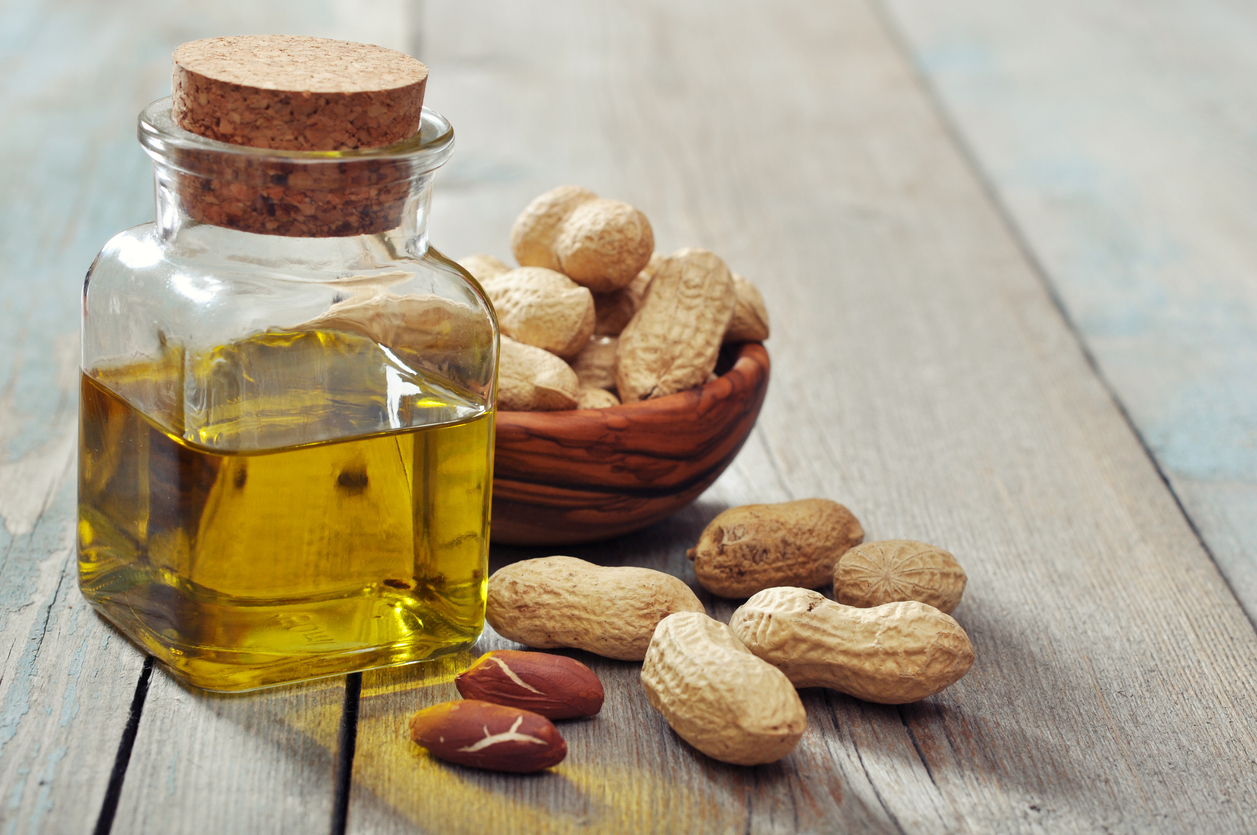Exploring the Rich Supply of Oils and Fats in Nigeria with Wigmore Trading
Exploring the Rich Supply of Oils and Fats in Nigeria with Wigmore Trading
Nigeria is a land rich in culture, diversity, and natural resources – including a bountiful supply of oils and fats that have been essential to the country’s cuisine and economy for centuries. In this blog post, we’ll take a closer look at the wealth of oils and fats found in Nigeria with Wigmore Trading. Join us as we explore the origins, uses, and benefits of these versatile ingredients that play a vital role in Nigerian cooking and beyond.
Introduction to Wigmore Trading
Wigmore Trading is a leading supplier of oils and fats in Nigeria, providing high-quality products to meet the diverse needs of consumers. With over 20 years of experience in the market, Wigmore Trading has established itself as a trusted source for oils and fats among manufacturers, retailers, and distributors.
The company takes pride in its wide range of products that cater to various industries such as food processing, cosmetics, pharmaceuticals, and animal feed. Their product portfolio includes palm oil, coconut oil, shea butter, sunflower oil, soybean oil, and many others. They also offer specialty oils like argan oil and jojoba oil for specific purposes.
One of the key strengths of Wigmore Trading is their commitment to quality. All their products undergo strict quality control measures to ensure that they meet international standards. The company follows Good Manufacturing Practices (GMP) and Hazard Analysis Critical Control Point (HACCP) protocols to maintain the highest levels of safety and hygiene throughout the production process.
Moreover, Wigmore Trading sources its oils and fats from reputable suppliers who adhere to sustainable practices. This not only ensures the quality of their products but also promotes ethical sourcing methods that benefit local communities and protect the environment.
In addition to their dedication to quality products, Wigmore Trading also values customer satisfaction. They have a team of knowledgeable professionals who are always ready to assist customers with their inquiries or orders. Whether it’s finding the right type of oil for a specific application or arranging timely delivery services, Wigmore Trading goes above and beyond to ensure a seamless experience for their clients.
Furthermore, with an extensive distribution network across Nigeria, Wigmore Trading can deliver its products promptly to different regions within the country. This allows them to cater to both small-scale businesses looking for smaller quantities as well as large corporations requiring bulk orders.
Wigmore Trading stands out among other suppliers due to its exceptional product quality, ethical sourcing methods, and commitment to customer satisfaction. Through their continuous efforts in sourcing and supplying high-quality oils and fats, the company has become a trusted name in the Nigerian market. In the following sections of this blog, we will explore some of the top products offered by Wigmore Trading and how they are being used across various industries in Nigeria.
Overview of the Oil and Fat Industry in Nigeria
The oil and fat industry in Nigeria is a vital sector of the country’s economy, contributing significantly to its Gross Domestic Product (GDP). With an estimated population of over 200 million people, Nigeria has a high demand for oils and fats, making it one of the largest markets in Africa.
Nigeria is blessed with abundant natural resources, including various types of oilseeds such as palm kernel, groundnut, coconut, sesame seeds, and shea nuts. These oilseeds serve as raw materials for producing different types of oils and fats. The major players in the Nigerian oil and fat industry are small-scale farmers who cultivate these crops in large quantities.
Palm oil is the most widely produced oil in Nigeria. It accounts for about 45% of the total vegetable oil consumed in the country. Other significant contributors to the industry include soybean oil, groundnut oil, cottonseed oil, coconut oil, and sunflower seed oil. Shea butter is also a prominent fat produced from shea nuts mainly found in northern Nigeria.
The production process of oils and fats involves crushing or pressing seeds and nuts to extract their natural oils. This process can be done manually or using modern machinery depending on the scale of production. After extraction, refining takes place to remove impurities from the crude oils before they are ready for consumption or further processing into other products like soap or margarine.
Wigmore Trading Company is at the forefront of promoting sustainable practices within this industry by partnering with local farmers across different regions in Nigeria to ensure quality supply chains. Through providing training programs on sustainable farming techniques and investing in modern processing facilities equipped with state-of-the-art technology; we strive to produce high-quality oils that meet international standards while supporting local communities.
The demand for Nigerian oils and fats extends beyond its borders; many neighboring countries rely on this rich supply for both domestic consumption and industrial use. The increase in global awareness towards healthy living has also fueled the demand for organic oils, and Nigeria is well positioned to meet this growing need.
The oil and fat industry in Nigeria plays a significant role in the country’s economy. With its vast natural resources and continuous efforts towards sustainable production, Nigeria remains a key player in the global market for oils and fats. At Wigmore Trading Company, we are proud to be part of this flourishing industry and aim to continue providing high-quality products that meet both local and international standards.
Types of Oils and Fats Available in Nigeria
Nigeria is a country blessed with an abundance of natural resources, including a wide range of oils and fats. These oils and fats are not only essential for cooking purposes but also have various other uses in industries such as cosmetics, pharmaceuticals, and biofuels. In this section, we will explore the different types of oils and fats available in Nigeria.
1. Palm Oil:
Palm oil is one of the most commonly used oils in Nigeria due to its widespread availability and affordability. It is extracted from the pulp of oil palm fruits and has a deep orange-red color due to its high concentration of beta-carotene. Apart from being used for cooking, palm oil is also used in making soaps, candles, and cosmetics.
2. Coconut Oil:
Coconut oil has gained popularity in recent years due to its numerous health benefits. It is extracted from dried coconut meat through either cold pressing or expeller pressing methods. Coconut oil has a high smoke point which makes it suitable for frying food at high temperatures without producing harmful free radicals. It is also widely used in skincare products due to its moisturizing properties.
3. Groundnut Oil:
Groundnut oil, also known as peanut oil, is another popular cooking oil in Nigeria that is extracted from groundnuts (peanuts). This light-colored oil has a mild flavor and can withstand high heat without burning easily. Groundnut oil contains monounsaturated fatty acids which are considered beneficial for heart health.
4. Olive Oil:
Although not produced locally, olive oil has gained popularity among Nigerians as a healthy alternative to other vegetable oils. It is primarily imported from countries like Spain, Italy, Greece, and Tunisia. Olive oil is rich in monounsaturated fatty acids and antioxidants that may help lower the risk of chronic diseases.
5.Oilseed Crops:
Apart from these commonly used oils mentioned above, Nigeria also produces various types of specialty oils derived from specific crops such as soybean, sesame, cottonseed, and sunflower. These oils are used for cooking purposes as well as in the production of margarine, mayonnaise, and salad dressings.
6. Animal Fats:
Animal fats such as beef tallow and lard are also commonly used in Nigerian cuisine. These fats are rendered from animal tissues and have a high smoke point, making them suitable for frying food at high temperatures. They are also used in soap making and other industrial applications.
Nigeria has a diverse range of oils and fats available for various purposes. It is important to choose the right type of oil depending on its intended use to reap its maximum benefits. At Wigmore Trading, we offer a wide variety of quality oils and fats sourced directly from local farmers to cater to all your needs.
The Benefits of Using Locally Sourced Oils and Fats
Using locally sourced oils and fats in your cooking can have numerous benefits for both your health and the environment. In Nigeria, a country rich in natural resources, there is an abundance of oils and fats that are not only delicious but also beneficial for our bodies.
Firstly, using locally sourced oils and fats means supporting local farmers and producers. By purchasing these products, you are directly contributing to the economy of the community, creating jobs and supporting small businesses. This not only helps to strengthen the local economy but also promotes sustainable agriculture practices.
Locally sourced oils and fats are also fresher than their imported counterparts. They do not have to travel long distances or be stored for extended periods before reaching your kitchen, which means they retain their nutritional value and flavor. Freshness is crucial when it comes to oils and fats as they can easily go rancid if stored for too long. By using locally sourced options, you can ensure that you are getting high-quality products that are at their peak freshness.
Another significant benefit of using locally sourced oils and fats is their impact on the environment. Importing goods from other countries requires transportation, which contributes to carbon emissions that harm our planet. By choosing locally sourced options, you are reducing your carbon footprint while still enjoying delicious oils and fats.
Moreover, many local producers in Nigeria use traditional methods of extracting oil from nuts or seeds without adding any chemicals or preservatives. This results in healthier products that contain all-natural ingredients with no added chemicals or artificial additives. These traditional methods also help preserve the nutrients present in these oils and fats compared to industrialized processes used by large-scale manufacturers.
In addition to being environmentally friendly and promoting sustainable farming practices, locally sourced oils are often more affordable than imported ones due to lower transportation costs. This makes them accessible for everyone to incorporate into their cooking routine without breaking the bank.
Using locally sourced oils allows you to explore different flavors unique to Nigeria. With a wide variety of oils and fats available such as palm oil, coconut oil, shea butter, and more, you can add a distinct taste to your dishes that cannot be replicated with imported products.
There are numerous benefits to using locally sourced oils and fats in Nigeria. From supporting the local economy to promoting sustainable practices and enjoying unique flavors, incorporating these products into your cooking can have a positive impact on both your health and the environment. So why not explore the rich supply of oils and fats in Nigeria with Wigmore Trading today!
How Wigmore Trading Sources and Supplies Quality Oils and Fats
At Wigmore Trading, we take pride in sourcing and supplying only the highest quality oils and fats to our customers in Nigeria. Our commitment to providing top-quality products starts with our rigorous sourcing process.
We have established strong relationships with trusted suppliers both locally and internationally, ensuring that we have access to a diverse range of oils and fats from various regions. This allows us to offer a wide selection of products to meet the specific needs and preferences of our customers.
When selecting suppliers, we prioritize those who share our values of sustainability, ethical production practices, and high standards for product quality. We thoroughly vet all potential suppliers before entering into partnerships with them, conducting on-site visits and reviewing their production processes to ensure they align with our standards.
In addition to our stringent supplier selection process, we also conduct regular quality checks on all incoming batches of oils and fats. Our team of experts conducts thorough tests on each product, including visual inspections, sensory evaluations, chemical analysis, and microbiological testing. Only after meeting our strict criteria do these products make it onto our shelves.
Not only do we prioritize quality at the sourcing stage but also during transportation and storage. We work closely with logistics partners who specialize in handling sensitive food products like oils and fats. This ensures that all products are transported under controlled conditions to maintain their integrity.
Furthermore, upon arrival at our warehouses, all products undergo temperature-controlled storage until they are ready for distribution. This not only helps preserve the quality but also extends the shelf life of the oils and fats so you can enjoy them longer.
Our commitment to providing high-quality oils and fats extends beyond just sourcing them; we also strive to educate our customers on how best to use these products for optimal results. Our team is always available for any questions or concerns about product usage or storage methods.
At Wigmore Trading, we go above and beyond when it comes to sourcing and supplying quality oils an
Uses for Oils and Fats in Nigerian Cuisine
Nigerian cuisine is known for its rich and diverse use of oils and fats in cooking. These essential ingredients not only add flavor and depth to dishes, but also provide numerous health benefits. In this section, we will explore the various uses for oils and fats in Nigerian cuisine.
1. Palm Oil:
Palm oil is a staple ingredient in Nigerian cuisine. It is extracted from the fruit of oil palm trees and is commonly used as a base for soups, stews, sauces, and marinades. Its vibrant red color and distinct flavor make it an essential ingredient in many traditional dishes such as Egusi soup, Banga soup, Ofe Akwu (palm nut soup), and Jollof rice. Aside from adding flavor to dishes, palm oil also provides a good source of Vitamin E which helps boost immunity and promote healthy skin.
2. Groundnut Oil:
Also known as peanut oil, groundnut oil is another widely used oil in Nigerian cuisine. It is made from pressing roasted peanuts to extract the oil. Groundnut oil has a high smoke point which makes it ideal for deep frying foods such as plantains, yams, or meat fritters like akara or suya skewers. It adds a delicious nutty flavor to dishes while also providing heart-healthy monounsaturated fats.
3. Coconut Oil:
Coconut oil has gained popularity in recent years due to its numerous health benefits including boosting metabolism and aiding weight loss. In Nigerian cuisine, coconut oil is used mainly for frying foods or making sauces like Ayamase (Green Amaranth Stew). It can also be added to rice dishes for extra flavor and richness.
4. Shea Butter:
Shea butter may be more commonly associated with skincare products but it also plays an important role in Nigerian cuisine. Made from the nuts of shea trees found in West Africa, shea butter has been traditionally used as cooking fat in Nigerian cuisine. It has a high smoke point and imparts a unique flavor to dishes like Efo Riro (vegetable soup) and Ewa Agoyin (mashed beans). Shea butter is also rich in Vitamin A, making it beneficial for eye health.
5. Palm Kernel Oil:
Derived from the seeds of the oil palm tree, palm kernel oil is another essential ingredient in Nigerian cooking. It is commonly used for deep frying foods and adds a distinct flavor to dishes like Boli (roasted plantains) or Akara (bean fritters). Palm kernel oil is rich in lauric acid which has antibacterial and anti-inflammatory properties.
Oils and fats are not just used for cooking but also play an important role in adding flavor, texture, and nutritional value to Nigerian cuisine. With the wide variety of oils available, each with its own unique qualities and benefits, it’s no wonder that Nigerian cuisine is so flavorful and diverse.
Sustainable Practices: Supporting Local Farmers and Communities
Sustainable Practices: Supporting Local Farmers and Communities
Nigeria is a country rich in natural resources, including oil and fats. However, this abundance can sometimes lead to unsustainable practices that harm the environment and local communities. At Wigmore Trading, we are committed to promoting sustainable practices in the production of oils and fats to support both the environment and local farmers.
One of the key ways we achieve this is by sourcing our products directly from local farmers. By working closely with these farmers, we are able to ensure fair prices for their products and provide them with training on sustainable farming methods. This not only benefits the farmers themselves but also helps to protect the land they rely on for their livelihoods.
In addition, we prioritize working with small-scale farmers who use traditional methods of farming rather than large industrial farms. This allows us to support smaller communities that may otherwise be at risk of being marginalized by larger companies.
We also place a strong emphasis on environmental sustainability in our production processes. Our facilities utilize modern technology to minimize waste and reduce our carbon footprint. We also have strict quality control measures in place to ensure that our products meet high standards while still being environmentally friendly.
At Wigmore Trading, we recognize that it is not just about producing high-quality oils and fats – it’s about doing so in a way that does not harm the environment or exploit local communities. That’s why we actively seek out partnerships with organizations such as Sustainable Agriculture Network (SAN) and Roundtable on Sustainable Palm Oil (RSPO) which promote sustainable practices throughout the supply chain.
Through these partnerships, we are able to continuously improve our own sustainability practices as well as those of our suppliers. This includes implementing responsible water management systems, protecting biodiversity, reducing greenhouse gas emissions, and promoting fair labor practices.
Our commitment to sustainable practices extends beyond just environmental impact – it also encompasses social responsibility. We believe that supporting local communities is crucial for long-term sustainability in Nigeria. That’s why we invest in community development projects, such as building schools and providing healthcare services, to improve the lives of those living near our facilities.
At Wigmore Trading, we are dedicated to supporting local farmers and communities through sustainable practices. By working together with these communities and prioritizing environmental responsibility, we can ensure a prosperous future for both our business and the people of Nigeria.
Conclusion: Why Choose Wigmore Trading for Your Oil and Fat Needs?
Conclusion: Why Choose Wigmore Trading for Your Oil and Fat Needs?
In a country like Nigeria, where oils and fats play an important role in everyday cooking and food production, it is crucial to have a reliable and trustworthy supplier. This is where Wigmore Trading comes in.
As one of the leading suppliers of oils and fats in Nigeria, Wigmore Trading has established itself as a go-to source for high-quality products at competitive prices. With over 20 years of experience in the industry, they have built a strong reputation for their commitment to excellence and customer satisfaction.
One of the main reasons why you should choose Wigmore Trading for your oil and fat needs is their wide range of products. They offer an extensive selection of oils such as palm oil, soybean oil, sunflower oil, coconut oil, and more. They also provide various types of fats including butterfat, vegetable shortening, margarine, and lard. With such a diverse range of options available, you can easily find the perfect product to suit your specific requirements.
Moreover, all their products are sourced from trusted local producers who follow strict quality control measures. This ensures that you receive only the best quality oils and fats that are safe for consumption. Additionally, Wigmore Trading maintains full transparency when it comes to their sourcing processes. They work closely with local farmers and producers to ensure fair trade practices while supporting the growth of small businesses in Nigeria.
Another advantage of choosing Wigmore Trading is their convenient delivery services. They have efficient logistics systems in place that allow them to deliver products right to your doorstep within a reasonable timeframe. This not only saves you time but also eliminates any hassle or inconvenience involved in procuring oils and fats from different sources.
Last but not least, customer satisfaction is at the heart of everything Wigmore Trading does. Their team consists of knowledgeable professionals who are dedicated to providing exceptional service to every client they serve. Whether you need assistance in choosing the right product or have any queries regarding their services, they are always available to help.
When it comes to oils and fats, Wigmore Trading is the ultimate choice for quality, variety, reliability, and customer satisfaction. With their rich supply of oils and fats from trusted local sources, convenient delivery services, and commitment to excellence, you can trust them as your go-to supplier for all your oil and fat needs. Don’t just take our word for it – try Wigmore Trading today and experience the difference firsthand!








Comments are closed.